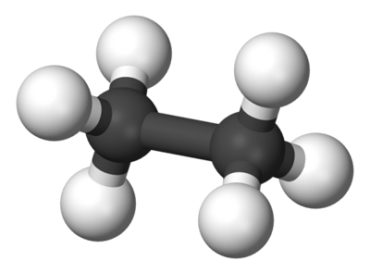
ethane [eth-eyn] ExamplesWord Origin noun Chemistry.
- a colorless, odorless, flammable gas, C2H6, of the methane series, present in natural gas, illuminating gas, and crude petroleum: used chiefly in organic synthesis and as a fuel gas.
Origin of ethane First recorded in 1870–75; eth(yl) + -ane Also called dimethyl. Examples from the Web for ethane Historical Examples of ethane
All we need trouble about, however, is the first two, Methane and Ethane.
Thomas W. Corbin
We have pictured to ourselves the molecule of methane: let us do the same with ethane.
Thomas W. Corbin
Ethane, (C2H6), a hydrocarbon belonging to the paraffin series.
Various
Acetylene combines with hydrogen in the presence of platinum black, and ethylene and then ethane result.
Acetylene, The Principles Of Its Generation And Use
F. H. Leeds
Add another of carbon and two more of hydrogen and you get the second “Ethane.”
Thomas W. Corbin
British Dictionary definitions for ethane ethane noun
- a colourless odourless flammable gaseous alkane obtained from natural gas and petroleum: used as a fuel and in the manufacture of organic chemicals. Formula: C 2 H 6
Word Origin for ethane C19: from eth (yl) + -ane Word Origin and History for ethane n.
1873, from ethyl + -ane, the appropriate suffix under Hofmann’s system.
ethane in Science ethane [ĕth′ān′]
- A colorless, odorless, flammable gas occurring in natural gas. It is used as a fuel and in refrigeration. Ethane is the second member of the alkane series. Chemical formula: C2H6.
 Liberal Dictionary English Dictionary
Liberal Dictionary English Dictionary